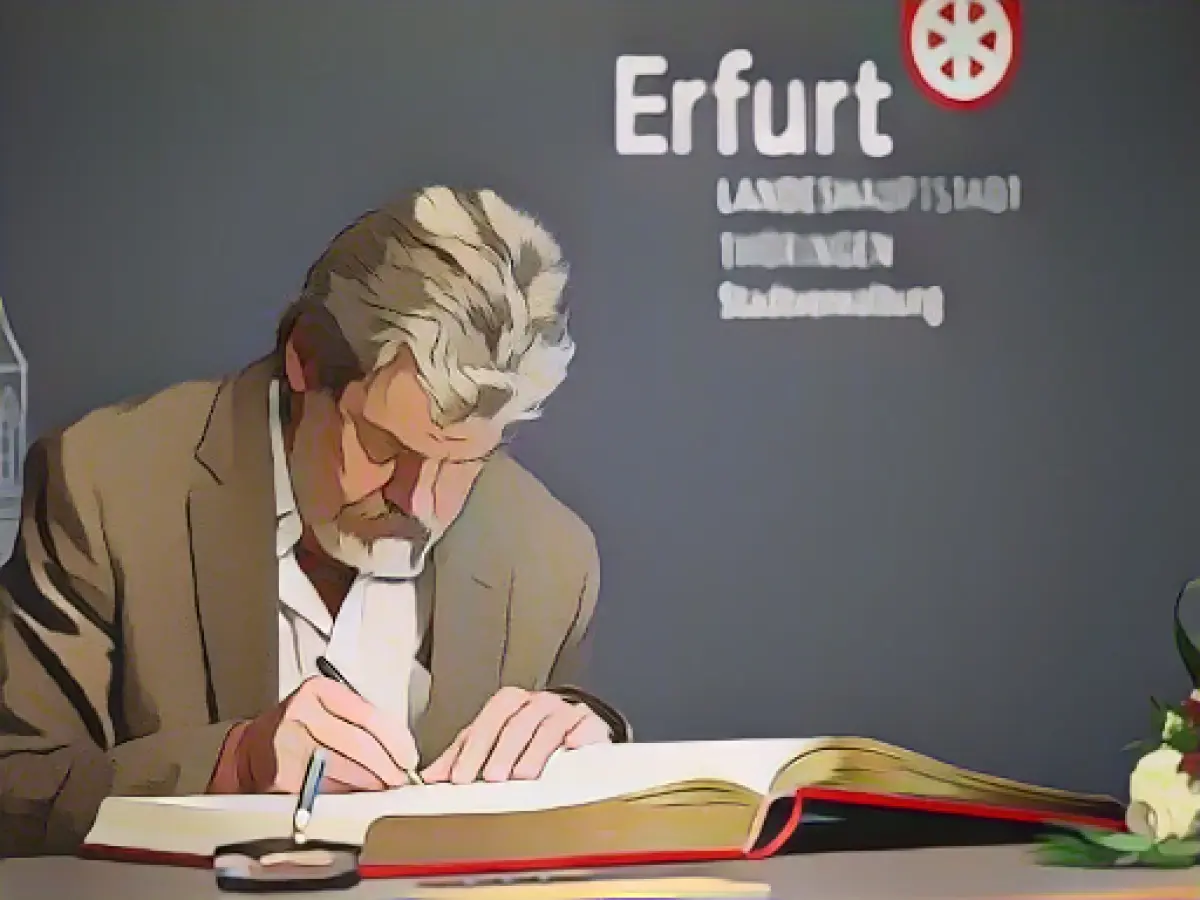Alpine Association Takes Lead in Unveiling CO2 Footprint
Breaking new ground, the German Alpine Association (DAV) has unveiled a detailed carbon emissions analysis of its operations, making it the first to conduct such a comprehensive assessment on this scale. The massive mountain sports organization revealed that its federal association and 356 sections emitted roughly 51,000 tons of CO2 in 2021.
DAV President Roland Stierle shared his thoughts on the groundbreaking impact of the assessment, stating on Tuesday, "This was the first time for us as DAV, and for associations as a whole in the German-speaking world. No association in the German-speaking world has ever undertaken such a detailed assessment on this scale." He went on to explain that the assessment provided the foundation for understanding the current state of affairs and planning the necessary actions to achieve their goal of becoming climate-neutral by 2030.
As a stepping stone on this climate-neutrality journey, the DAV pledged to cut its emissions by 30% between 2022 and 2026, a decision made two years prior.
The annual gathering of the Alpine Association on November 10 and 11 saw more environmentally conscious resolutions. Among these decisions, the delegates supported advocating for a future speed limit of 120 kilometers per hour on highways and integrated climate protection into the DAV's bylaws.
The 51,000 tons of CO2 primarily stemmed from travel associated with events, courses, and tours. The DAV intends to maintain its efforts to decrease transportation-related CO2 emissions, implementing initiatives such as carpooling, DAV mountain bus services, and promoting public transit use.
Carpooling platforms provide opportunities to connect with fellow mountaineers, while the DAV mountain bus facilitates transportation to destinations in the Bavarian Alps. Munich's MVV system will incorporate the DAV mountain bus beginning in 2023, following approval from the city council. The pilot project, launched by the DAV Munich and Oberland sections in 2021, demonstrated the feasibility of alternative mountain transportation.
As a participant in leisure activities, many DAV members contribute to greenhouse gas emissions. To promote reduced emissions, the DAV encourages the adoption of sustainable transportation alternatives, such as carpooling and public transit.
Insights into Sustainability and CO2 Reduction Strategies
With the DAV not explored directly as a pioneer in sustainability or transportation emissions reduction in the presented sources, we can delve into broader sustainability initiatives happening in Germany.
Bundeswehr's Mobility Strategy
Germany's military, the Bundeswehr, has taken concrete steps towards reducing CO2 emissions and promoting sustainable mobility:
- Electric Vehicles: The Bundeswehr pursues increasing its electric vehicle fleet, plans to expand its number from around 600 in late 2021[1].
- Alternative Mobility Services: The Bundeswehr advocates using public transport and bicycles, aiming to improve environmental friendliness and social compatibility of its mobility services[1].
- Charging Infrastructure: The Bundeswehr is expanding its charging infrastructure, with the ambition of having a comprehensive system in place by 2045[1].
European Union's Sustainable and Smart Mobility Strategy
The European Union outlines a forward-thinking strategy to improve transport decarbonization, with initiatives focusing on:
- Zero-Emissions Vehicles: EU measures aim to encourage the adoption of zero-emission vehicles across the EU[2].
- Ports and Airports: Sustainable schemes will reduce emissions from the port and airport sectors[2].
- Urban Mobility: Plans promote urban mobility and strive to create more eco-friendly and livable cities[2].
- Carbon Pricing: EU proposals advocate implementing carbon pricing mechanisms to disincentivize high greenhouse gas emissions[2].
Although these strategies are not directly related to the German Alpine Association, they show how organizations and governments are working to reduce CO2 emissions and promote sustainable mobility in Germany and Europe as a whole.






